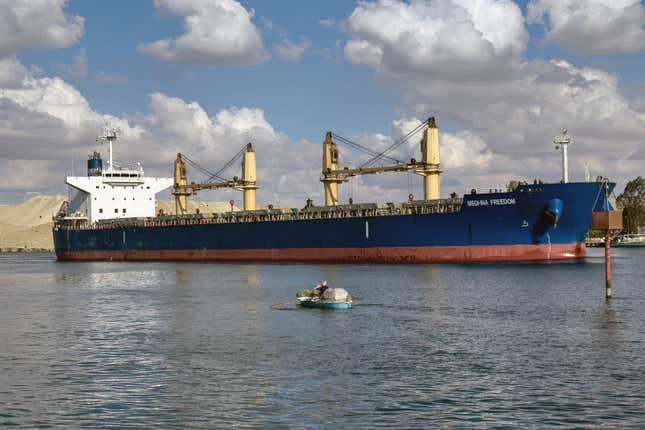
This story incorporates reporting from devdiscourse, TradeWinds and Reuters.
The Suez Canal Authority has announced that stability is returning to the Red Sea region. This comes after a period marked by regional tensions that raised concerns over potential disruptions in the critical maritime corridor. The Suez Canal remains a vital artery for global trade, handling approximately 12% of world shipping traffic. The assurance of stability is anticipated to bolster confidence among international shipping companies reliant on this route.
According to the Suez Canal Authority, the reduction in regional tensions has led to a favorable environment for maritime operations. The cautious optimism shared by the authority could incentivize major shipping companies to resume more frequent operations through the Red Sea. This resumption is critical not only for shipping companies but also for countries economically dependent on smooth trade flows. The operational stability of the canal is essential for maintaining efficient global supply chains.
While the Suez Canal Authority asserts the return of stability, some major shipping liners remain cautious. Companies are tentatively evaluating the situation, taking into account the historical context of disruptions in the region. Shipping firms continue to implement contingency plans, ensuring they can swiftly navigate any sudden changes in regional security conditions. These precautions highlight the ongoing reluctance among some maritime operators to fully commit to pre-disruption levels of activity.
The economic implications of a stable Red Sea are significant. As stability increases, the likelihood of delays decreases, reducing costs for shipping companies. This not only benefits the maritime industry but also affects global trade dynamics. Lower transportation costs can lead to lower prices for goods circulating through international markets, potentially easing inflationary pressures in importing countries. Consequently, consumers and businesses worldwide may benefit from improved efficiency in global trade routes.
Furthermore, the easing of tensions and the resulting operational stability could stimulate additional investments in infrastructure in the region. By enhancing port facilities and logistics capabilities, regional players may attract more commercial traffic, leading to economic growth. This development aligns with the broader strategic goals of enhancing the infrastructure to support the expanding needs of global commerce.
The confirmation of stability from the Suez Canal Authority signifies a positive step towards ensuring continuous and efficient passage through one of the world’s busiest maritime corridors. While the situation demands monitoring, the potential economic benefits of a stable and operational Red Sea corridor cannot be underestimated. The global shipping community will undoubtedly remain attentive to developments, weighing their impact on international trade and logistics networks.
Quartz Intelligence Newsroom uses generative artificial intelligence to report on business trends. This is the first phase of an experimental new version of reporting. While we strive for accuracy and timeliness, due to the experimental nature of this technology we cannot guarantee that we’ll always be successful in that regard. If you see errors in this article, please let us know at [email protected].